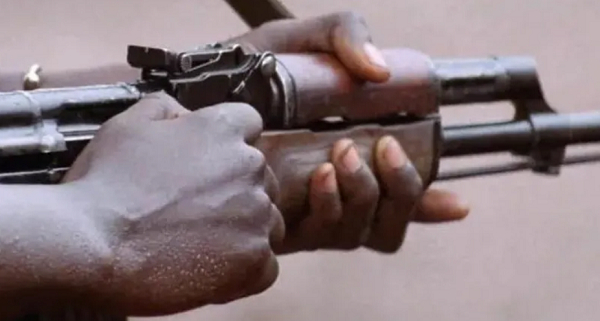Fresh assaults on schools last week, including two major abductions in Niger and Kebbi states, have revived painful memories of earlier tragedies and renewed questions about the safety of children in parts of Nigeria, particularly the North.
On November, gunmen seized 303 students from a Catholic school in Niger State.
The attack came only five days after 25 students were abducted in Kebbi State.
These incidents followed a pattern that has continued since April 2014, when Boko Haram kidnapped 276 girls from Chibok and dragged the world’s attention to the vulnerability of Nigerian schools.
According to Save the Children International and UNICEF, about 70 attacks on schools occurred between April 2014 and December 2022, with more than 1,680 students abducted.
Over 180 children, according to the bodies, were killed, 90 injured, and more than 90 remain missing. About 60 school staff members, they said, were also kidnapped in the same period.
Findings by Sunday Vanguard indicate that between January 2023 and November 2025, Nigeria recorded another 22 attacks on educational institutions, with 816 students kidnapped.
These figures represent only verified incidents reported by police and eyewitnesses.
Many more, especially in remote communities in Niger, Zamfara, Sokoto and Katsina, are believed to have gone unreported.
If those cases were included, the total number of incidents would likely exceed 92.
Boko Haram fighters stormed a local school at night, overpowered guards and carted away 276 girls. Some escaped by jumping from the vehicles, but most were taken into remote forest camps.
Years later, many have returned through rescue operations or negotiated releases, yet UNICEF reports that about 90 are still missing.
Rather than deter future attacks, Chibok opened the way for an escalating crisis.
As Boko Haram’s power shifted, criminal groups in the North-West turned mass abduction into a lucrative business.
Kidnapping students became a reliable source of income, and communities across Kaduna, Katsina, Zamfara, Sokoto, Niger and Kebbi states began to experience recurring assaults.
UNICEF’s monitoring reports show that only 37 percent of schools across ten high-risk states have even basic early-warning systems.
Human Rights Watch, for its part, described the situation as one sustained by impunity, saying bandit groups now attack schools with little fear of consequences.
How each crisis unfolded Chibok, April 2014
Several state governments have temporarily shut schools, strengthened perimeter security or reviewed boarding policies. Yet, many of these measures have been reactive rather than preventive. UNICEF and civil society groups continue to push for full implementation of safe-school standards, better funding, improved law enforcement capacity and reliable early-warning systems.
Human Rights Watch maintains that the cycle of kidnappings reflects structural weaknesses in governance and security planning, and that Nigeria’s most vulnerable communities continue to pay the price.
Ransom dilemma
Although the Federal Government repeatedly denies paying ransom, accounts from communities, parents and independent investigators suggest that ransom payments have occurred in several cases.
Chibok (2016 and 2017 releases)
Multiple reports indicate that about N3 million was paid in two instalments to secure the release of roughly 103 girls.
The human toll
Behind the numbers lies widespread trauma. Many children refuse to return to school out of fear, and parents withdraw others because they can no longer guarantee safety. UNICEF estimates that more than one million Nigerian children have reported fear of attending school due to insecurity. In 2020 alone, about 11,500 schools were closed.
Survivors often struggle with psychological trauma, social stigma and disrupted education. Reintegration programmes remain limited and underfunded, leaving many children without the support they need.
National response
After every major abduction, state and federal authorities issue strong condemnations and promise rescue operations. Some responses have been swift, with security deployments and task force creation. For instance, following the recent Kebbi attack, President Bola Tinubu directed the Minister of Defence to relocate to the state.
However, these reactions have not always translated into consistent action. Some rescues have been quick and coordinated, while others were protracted or incomplete. Analysts argue that the government’s approach has lacked coherence and long-term planning.
Public outrage often follows each incident. Chibok inspired global activism, while later events triggered mass protests, vigils and renewed calls for accountability. International partners also expressed concern and, at times, provided technical support.
Armed militants invaded the Government Girls Secondary School at night, forcing students into trucks and driving them deep into the forest.
The abduction shook the world, sparked the #BringBackOurGirls movement and brought unprecedented scrutiny to the state of school security. Although some girls were rescued or released through negotiations, scores remain unaccounted for ten years later.
Kuriga, Kaduna, March 2024
Gunmen arrived as students assembled for the morning session. Early reports indicated that 287 pupils were taken. The kidnappers reportedly demanded one billion naira. Security experts argued that the steady rise in ransom-driven abductions reflected the state’s inability to disrupt criminal networks.
